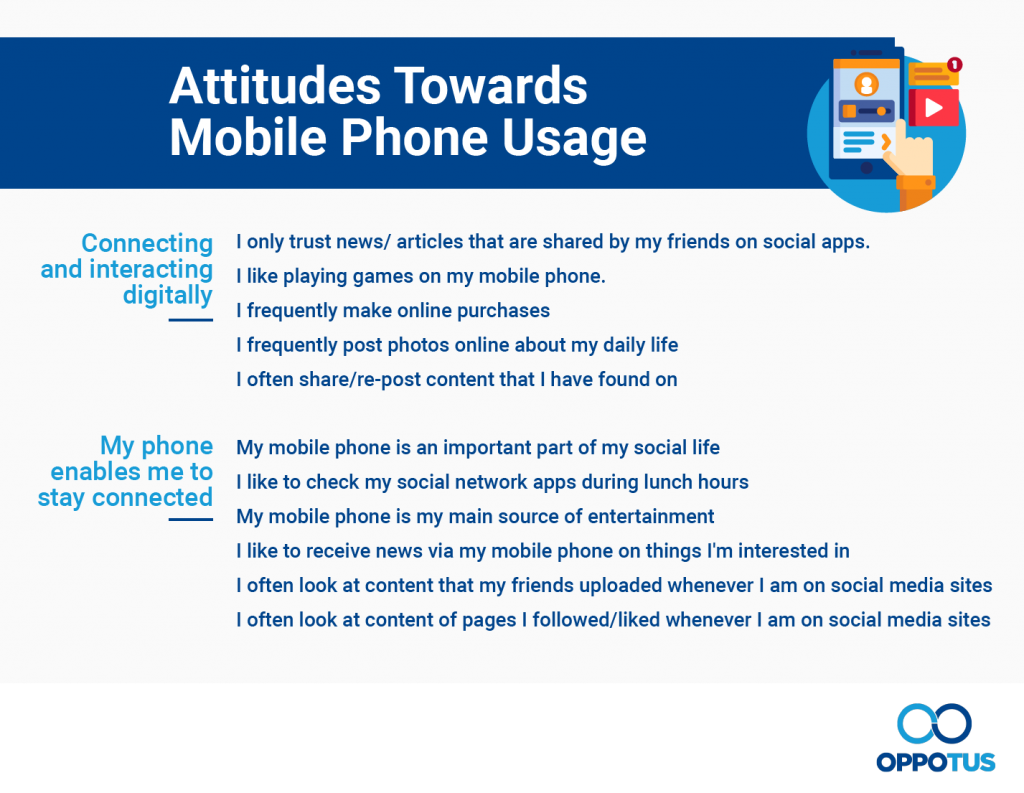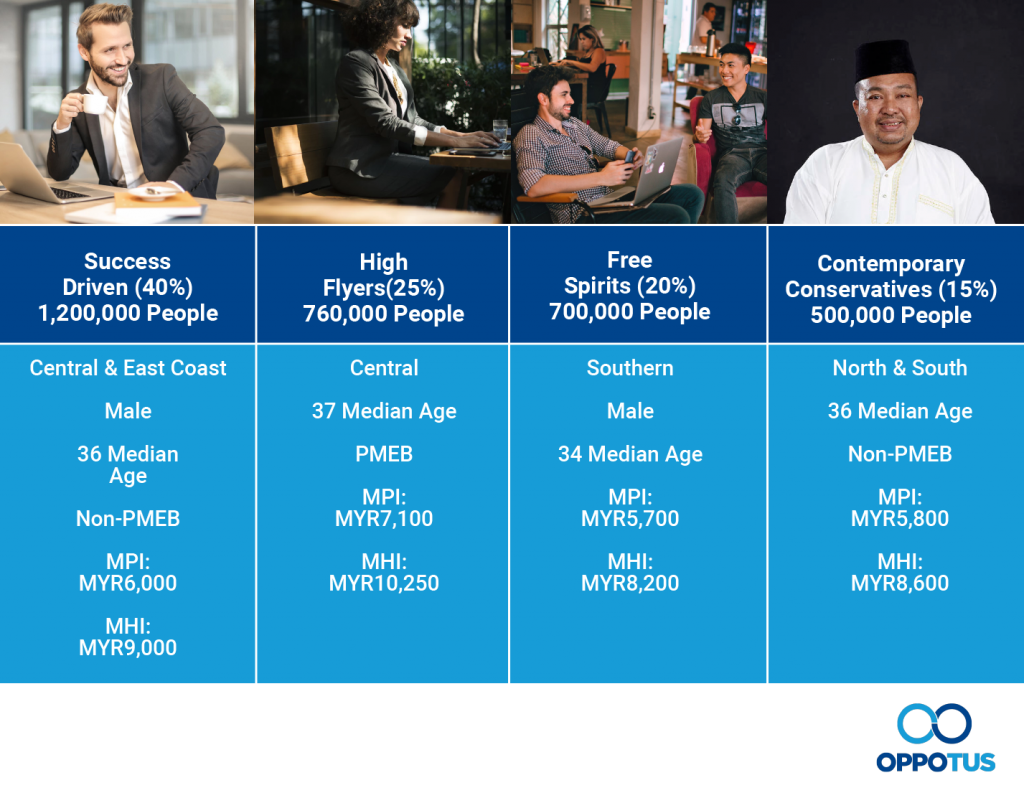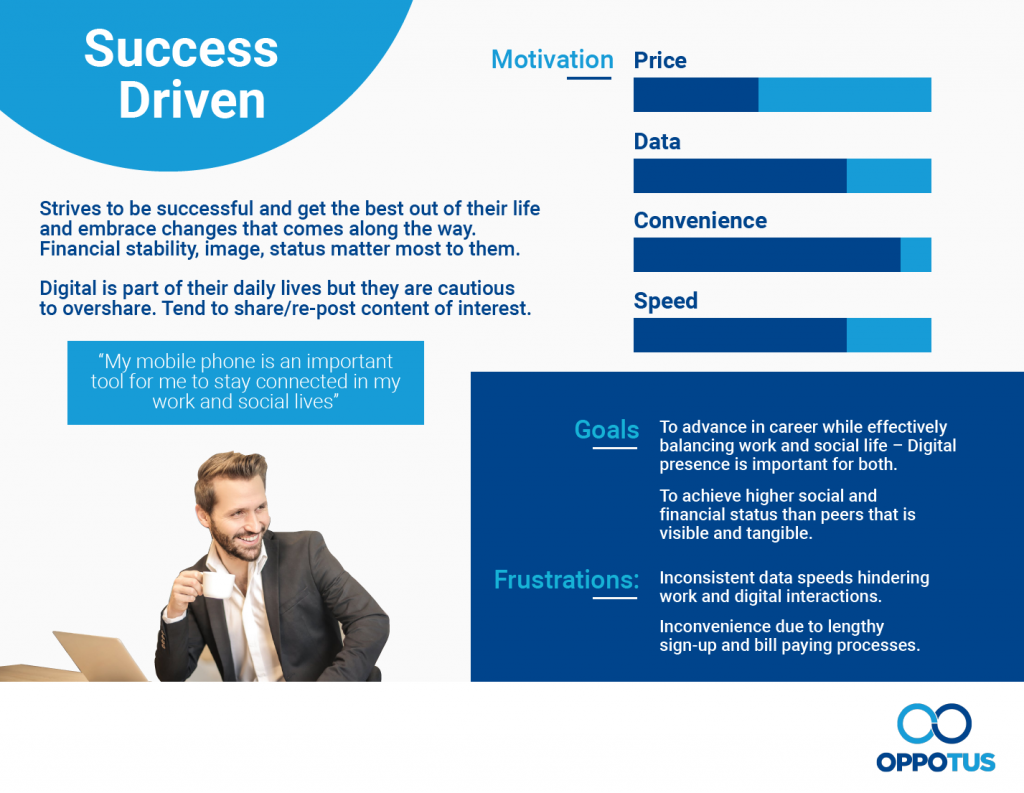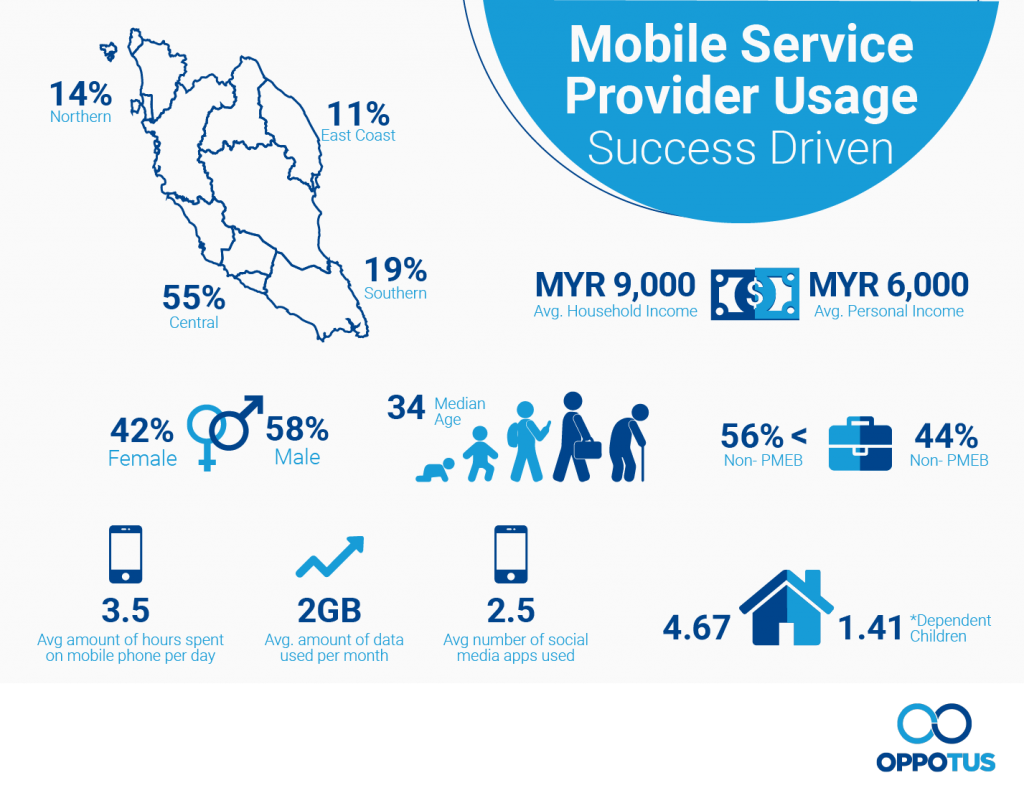How can knowledge of user personas help take your market research insights to an even deeper level?
In our previous article about market research, we explored the importance of having a market research framework and the various benefits that having a market research framework can yield when attempting to bring a new product to the market.
One aspect that we touched on was consumer segmentation, also known as “user personas”. This refers to the process of identifying the distinct characteristics and personality groups that consumers can exhibit.
In another words, going beyond just demographics.
When it comes to marketing, companies often focus on marketing to a particular demographic based on general factors such as age, race, gender and so on. However, in practice, consumers can act and think very differently from one another even though they technically belong to the same demographic. Just because two people are of the same age, race, gender, income and live in the same area, it does not necessarily mean that they think the same way, and this can severely hinder your marketing strategy if not taken into account.
Doing a study of the various user personas that exist within your target demographic can provide a much deeper insight on the pain points and values that your potential customers possess, which then allows you to formulate an even more effective marketing strategy.
In this article, we’ll take a look at the consumer segmentation process and explore the valuable insights that user personas can provide for your company.
Psychographic Statements
For the purposes of this article, we’ll be using an imaginary case study on mobile phone plans to illustrate how consumer segmentation and user personas can provide some valuable insight about our potential consumers.
The first step in consumer segmentation is to prepare a set of psychographic statements that will be presented to the consumers in a market research study.
Psychographic statements are a set of statements that reflect the various thoughts, values and attitudes that the consumers could potentially have regarding the product in question and their lifestyles. These statements usually fall into one the following categories:
Attitudes towards life e.g. “I don’t want to lose out on social experiences.” “I want to get the most out of life.”
Values e.g. “I place a high value on being connected digitally at all times.” “It’s important for me to stay close to my roots.”
Attitudes towards product related elements e.g. “My phone is one of the most important things in my life.” “I want a bank that suits my individual needs.”
Below are examples of some of the psychographic statements which would apply to a user segmentation study on mobile service providers. A collection of about 60-80 such statements would be prepared by us beforehand before being presented to a study group of consumers. Each consumer would then be asked to provide feedback on which statements they agree with and to what extent they are able to associate with each statement.

In this scenario, a mobile phone provider wants to find out what different consumers desire from their mobile phone plans so that they can determine what kind of packages to offer and how to market these packages to the different types of consumers. Do certain consumers prefer high speed data over everything? Or more consumers concerned with keeping their plans affordable. Do all consumers want data with their plans nowadays? Or is there a significant group of consumers who don’t really consume digital media that is still worth catering to? Using psychographic statements to gauge how consumer groups act and think regarding mobile phone usage would enable us to gain a deep insight into how and why different groups of people use their mobile phones on a daily basis.
Once all the statements and feedback have been collected, we perform a mathematical analysis through a series of calculations that is defined by our own specialised framework. This allows us to identify which statements have a strong correlation with each other. For example, we might find that consumers who placed a strong emphasis on “living in the moment” also strongly identified with the statement that “my social media presence is everything.” This allows us to identify attitudes that link consumers together in definable groups and subsequently define the various user personas that are present in the consumer population.
Defining the User Personas
Once the analysis and calculations to group the statements together have been completed, we will find ourselves with an number of distinct segments that each have their own set of correlating psychographic statements.
By looking closely at the attitudes and values that these sets of statements reflect, we can then derive and label the type of personality that these attitudes and values are synonymous with.
Here are a few possible personas that can be derived from our mobile phone scenario.

This is where we begin to see the true value of consumer segmentation. Once the user personas have been derived and labelled, we are able to extrapolate data which informs us of the vital characteristics of each user persona, including their gender, age, income, and the number of people which exist in that category, painting an accurate picture of how these personas think and behave.

Another interesting fact we would learn is the size of each consumer segment or user persona.
This would help us identify and determine which consumer groups we wish to go after based on market size as well as the likelihood that we would be able to address and resonate with that particular group.
The insights don’t stop there. With our framework, we are able to construct demographic profiles of each persona that are tailor made for the particular product/industry in question.

In the case of mobile phone plans, we would be able to determine the volume of each persona’s mobile phone usage as well as the particular functions that they utilise on their mobile phone most often. This is in addition to the valuable knowledge of which products and mobile service providers that these consumers are currently using.
Strategise
With our knowledge of the user personas and the products that they demand, along with the accompanying statistics on that demographic’s income and lifestyle attitudes, we are now in the perfect position to formulate a product or marketing strategy to effectively target each demographic.
Besides formulating strategies on how to market to each particular demographic, the combined insights on the various personas that make up our overall consumer demographic can also be used to inform a more holistic business strategy. In practice, it is extremely unlikely that any business would be able to develop and market products to suit each and every user persona that exists in their consumer demographic – especially since most real life scenarios result in as many as 6 or more user personas.
 Since we are able to accurately gauge the size of each demographic along with their spending habits and their demand for particular products, we can make an informed decision to determine which products will be most successful in the existing market and which demographics these products should be marketed to in order to convert the largest percentage of consumers possible.
Since we are able to accurately gauge the size of each demographic along with their spending habits and their demand for particular products, we can make an informed decision to determine which products will be most successful in the existing market and which demographics these products should be marketed to in order to convert the largest percentage of consumers possible.
In our mobile phone plan example, this would mean creating a set of mobile phone plans that are each suited to large demographics with a high demand for that particular type of plan. These plans could even incorporate bonuses such as free access to paid apps such as Spotify which have a high demand amongst the most prominent user personas in the consumer demographic in order to maximise the pull of the mobile service provider.
Conclusion
The importance of market research is well known amongst prominent companies these days, but a top notch market research specialist can help elevate the success of your business to a whole new dimension that your competitors might not even be aware of.
At Oppotus, we take pride in being one of the pioneers at the forefront of Asia’s market research landscape, constantly pushing boundaries and unearthing new insights to push industries and markets forward.
Contact us now to see what Oppotus can achieve for your business!


